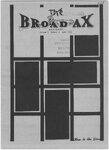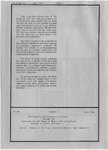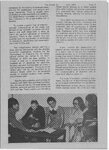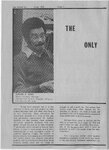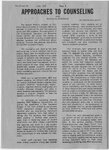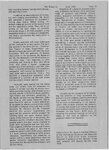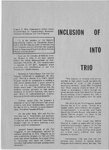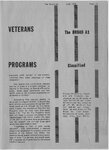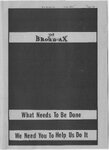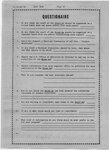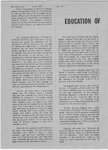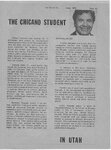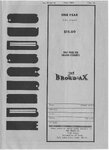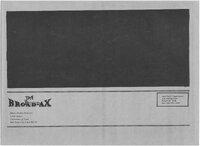| OCR Text |
Show INCLUSION Eugene D. Ellis, Presentation before House Subcommittee on Postsecondary Education Inclusion of Veterans into Trio Programs “It is Coordinating the position Council for of the Education OF National Oppor- tunity that the mass inclusion of veterans into Trio Programs would undermine the progress made in these programs and not be to the best interest of either group”. INTO Such are the remarks of NCCEO Director, Eugene D. Ellis, in his April address before the House Subcommittee on Postsecondary Education. Mr. Ellis’ remarks came in response to HR 3471, legislation which the modification of the Trio proposes Programs to include veterans. TRIO -Refering to Talent Search (the first Trio Program said, mentioned “Placing Program would in legislation), Mr. Ellis a veteran Search in a Talent ‘‘The inclusion of veterans who are not enrolled in high school would neutralize the effectiveness of much of the program’s benefits to students’’, stated Ellis. He advised that ‘‘Most veterans would be better off to obtain an equivalency diploma through the armed services rather than depend on Upward Bound services, since it appears that only a limited aspect could possibly serve the needs of veterans.”’ be comparable to sending a high school student back to grade school to deficiencies, it up his educational make that the explained simply won't work.’’ He program consists primarily of high school ‘dropouts, or potential dropouts, who have a past history of underachievement, truancy, language problems and cultural obstacles. Further, stated Ellis, the program is designed for junior high and early high school students who show postsecondary potential, but dueto family, financialor social disadvan- The third of the Trio Programs, Special Services has in Ellis’ words, “Served to a modest extent some Vietnam era veterans.” An improvement, in his opinion, over Talent Search and Upward Bound, individuals in the Special Services program are closer to the veteran’s ages, as well as their maturity. tages, find school success difficult. On the other hand, Ellis said that the returning Vet is ‘emotionally and psychologically an adult. Theonly thing this person has in common with the traditional Talent Search student might be, in some instances, a low leve| of academic competence.”’ Upward Bound (second of the However, emotional/psychological noted that Special make-up of the Vet in. comparison to the typical Trio student. Says Ellis,”” ,He is older and has needs which are almost totally different from other students on campus.” Trio Programs), is also inadequately tailored for veterans according to Ellis. Designed as an early intervention program for 10th and 117th grade high school students, the program seeks to ‘encourage and assist the student to complete high school and seek postsecondary education.”’ Ellis Services is unable to assist with the unique | Furthermore, Ellis said that the few veterans now involved in Special Service Programs hold minority status, but that, “An |
